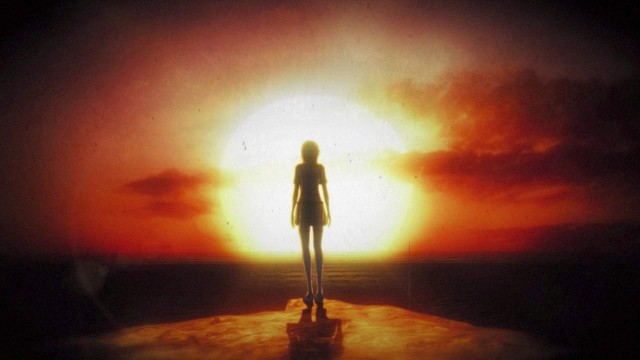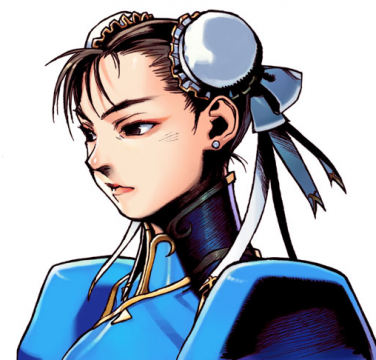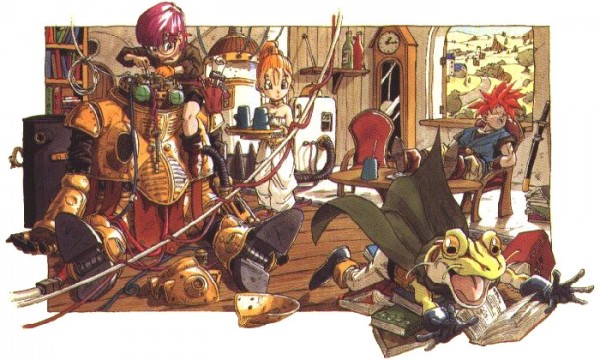
It was revealed recently that Fatal Frame: Maiden of Black Water would be coming to the west minus some of the content found in the game’s Japanese version. The content in question is a handful of skimpy and risque costumes for the two female lead characters, Yuuri Kozukata and Miku Hinasaki (Ren Hojo, to the chagrin of some readers, I’m sure, has no such ensembles). The knee-jerk reaction across the Internet by many fans has been one of disapproval for the change, with some going so far as to declare that Nintendo has outright censored the game. While I think it’s going a tad bit too far to paint Nintendo as oppressive Soviets with big, black markers going through people’s mail, I can understand the frustration with not seeing a game as it was originally created and meant to be. That said, fan annoyance doesn’t change the fact that this is an issue that goes well beyond simple censorship and freedom of speech.
Maiden of Black Water is a game for adults. As grown up, mature video game players, a lot of fans feel like their freedom of choice is being stymied by Nintendo playing things too safe. I’m personally inclined to agree, but maybe not exactly for the reasons that some people might think. For starters, I consider video games to be no different than any other form of entertainment or artistic expression. If shows like HBO’s Girls can nonchalantly feature male ejaculation, and Fifty Shades of Grey can be flipped through on bus rides like the daily newspaper, I fail to see why video games should be held to any kind of loftier moral standard. In the United States, the First Amendment is ferociously protected and fought for, yet it’s with gaming that some of the most outspoken vitriol is hurled the hardest. As a result, a couple of women in revealing negligee (not even nude) represent a potential blitzkrieg of bad press in the eyes of Nintendo, and so in response it preemptively sets loose its political correctness agents to sanitize everything for the sensitive masses.

That’s a really sardonic way of describing what, whether gamers want to acknowledge it or not, is a real dilemma for Nintendo, and the video game industry as a whole. The sad truth of the matter is that video games are held to a higher standard of moral obligation, regardless of whether or not they should be. The finger can be pointed at a number of incidents and people, from the outcry over Mortal Kombat in the early ’90s, to the YouTube diatribes of critics like Anita Sarkeesian. For decades, video games have served as the scapegoat for absentee parents looking to mask their poor child rearing and a platform for political grandstanders to set up strawman arguments for their own personal gain. Cries of “games are too violent, they teach kids to kill” and “games are sexist, they objectify women” have been repeated ad nauseam up to this point. The thing is, though, that some of these complaints are warranted criticisms.
In the early ’90s, the ESRB didn’t exist and the video game industry, with no real oversight in terms of its marketing and selling practices, operated in a veritable wild west state. People can debate how deliberately companies marketed adult titles like Doom and Mortal Kombat to minors, but there’s no denying that it happened, and that video game publishers did themselves no favors by not proactively working harder to self-police. Pundits were able to mount as damning a case as they did because the video game industry just made it so ridiculously easy to do so; blood and guts everywhere, with nothing to alert consumers before hitting power on their gaming consoles. It was, in a word, foolish, and the price paid was high, as the blackeye that the industry sustained as a result is arguably still there to this day.

Perhaps most important in terms of the issue at hand, however, is the marginalization of women and minorities within the world of video games. Now, I’m going to be blunt here, because it’s something I believe strongly in, when I say that this is a problem which I feel has been grossly blown out of proportion. White male leads are without a doubt the bread and butter of gaming, from the days of Atari all the way to now. There are a lot more Nathan Drakes in video games than there are Samus Arans. The thing is, though, the Samus Arans do exist, and have for years. Samus, Princess Zelda, Princess Peach, Paula, Chun-Li, Cammy, Terra Branford, Lucca, Marle, and others have been a part of the gaming landscape for many a console generation. The problem, unfortunately, is that the successes of the gaming industry in terms of diversification and representation are never acknowledged by mainstream media outlets, in the past or the present. Lara Croft’s bust, back when she debuted on PlayStation, was a headline grabber for feminists wanting to vilify the industry, and though they were somewhat justified in complaining about a character like Lara, others like Chun-Li and Samus continued to be ignored for the sake of convenience. Due to this selectiveness, it has been ingrained in much of the the public’s minds that video games are both misogynistic and racist.
To reiterate what I said above, the industry does deserve some of this grief, because despite my ability to list a respectable collection of diverse characters across the history of gaming, there’s no skirting the fact that the list isn’t long enough. There does need to be more diversity, and there are times when women and minorities have been blatantly marginalized and stereotyped. The warrior woman in a thong is out there, and with enough regularity that it justifiably rankles people. Barrett Wallace in Final Fantasy VII, as much as I personally love the character, can be pointed to by others as a stereotyping of African Americans. When an issue like the one plaguing Maiden of Black Water comes up, there’s no choice but to play devil’s advocate a bit when trying to suss out what was said behind closed doors in the marketing department. Nintendo can slap an M on Maiden of Black Water and put up all the disclaimers it wants, but there’s no escaping the fact that if the lingerie in the Japanese version of the game found its way into the Western release, there would be angry pitchfork wielders marching around outside of its headquarters in Redding.
Is it fair? No. Though I don’t have a personal objection to seeing these costumes swapped out in Maiden of Black Water, I can acknowledge that there isn’t a compelling reason that establishes why video games shouldn’t be able to feature adult/naughty content if their developers want them to. The Senran Kaguras and Dead or Alive Beach Volleyballs of the world have a place, just like Magic Mike and shirtless muscle men in soap operas do. It might be irritating to some that Nintendo didn’t pull the trigger on keeping Maiden of Black Water exactly as it was when it released in Japan, but I can more than appreciate where the company’s mindset was when it ultimately didn’t. It’s a no-win scenario for Nintendo to keep those original costumes in the game. The industry continues to face an uphill battle where it comes to media perception, and with critics like Sarkeesian twisting facts to bolster their Q rating as opposed to engaging in real journalism, the risk isn’t worth it for politically risky game content with absolutely no critical import to the enjoyment of the title. Maybe when someone is finally allowed to speak in defense of gamers the way that predators are allowed to speak against them things will change, but until then companies like Nintendo are better off playing things safe for the better of the industry as a whole.
What do you think? Should Nintendo care what critics have to say about it? Is self-censorship as bad as external censorship? Sound off below!




 ShareThis
ShareThis







I’ll give up guns and violence in video games if we can just see a little more skin.
Looks like Xenoblade Chronicles X is getting some similar treatment, which sounded heartbreaking until I actually saw the details.
http://www.ign.com/articles/2015/10/30/nintendo-reportedly-censoring-xenoblade-chronicles-x-in-the-west
In this case it’s a 15 year old character, so it’s hard to be too critical of playing down her sexuality, for western or any audiences.
From my vantage point, teenagers are not sexy and never will.
I suppose if we don’t know what we’re missing it doesn’t matter much. I’m more concerned that the overall game is good, looking forward to Xenoblade X either way. Downloaded the Fatal Frame game to try it out but haven’t gotten around to playing it yet. I for one don’t think games should be censored in any way, shape, or form; but I do support the idea of parental settings or the option in some games to censor certain subjects. Of course that’s what the rating system and reviews are for really.